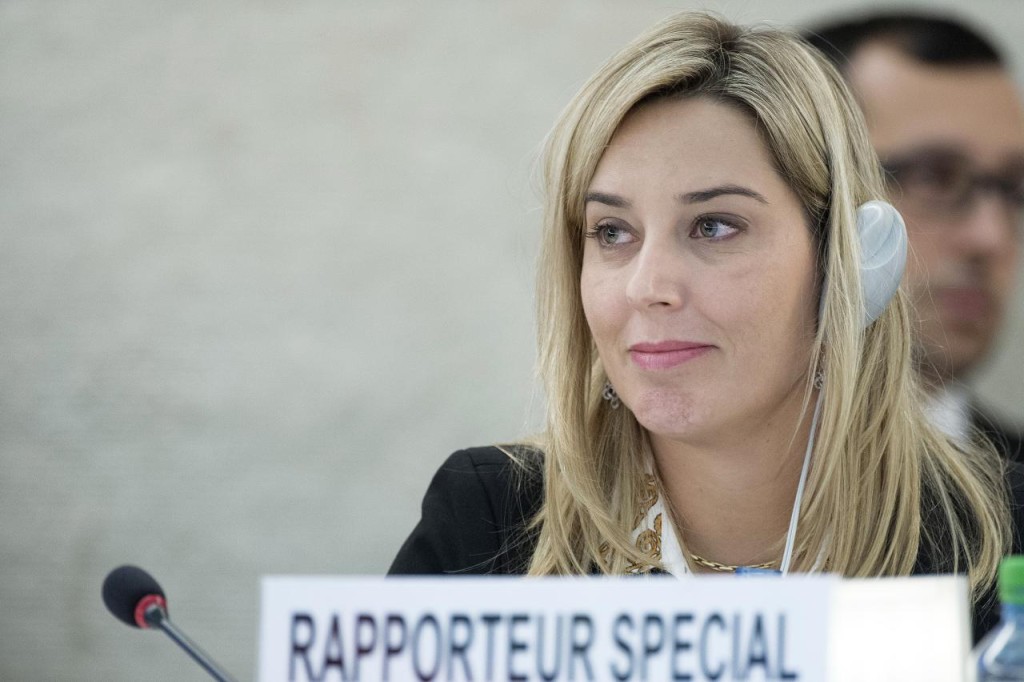In January 2014, Gabriela Knaul, the UN Special Rapporteur on the Independence of Judges and Lawyers, visited Qatar upon the invitation of the government. During her visit, she met with senior officials at the Ministries of Foreign Affairs, Justice, and Interior, as well as the Chief Justice of the Court of Cassation, in order to evaluate Qatar’s criminal justice system. She then presented a follow-up report to the UN General Assembly wherein she identified a wide range of problems affecting the Qatari judiciary. Her findings point to systemic flaws in Qatar’s judicial system.
In her report, Special Rapporteur Knaul first highlighted challenges to impartiality and accountability in the Qatari judiciary. She reported that the emir appoints all judges and expressed concern that this mechanism of appointment exposes them to undue political pressure. Law no. 10 of 2003 also provides the emir the power to dismiss judges “in the public interest.” Taken together, these powers allow the executive branch disproportionate influence in the work of the judiciary.
Ms. Knaul additionally expressed “a sense of alarm” at the lack of guarantees against arbitrary arrest and detention in Qatar. Though the Code of Criminal Procedure mandates that detainees must be presented to a prosecutor within 24 hours of detention, this guarantee does not apply to persons arrested under the Law on the Protection of the Community, the Law on Combating Terrorism, or the Law establishing the State Security Services. People arrested under these laws can be detained for long periods without charge.
The lack of transparency during both the investigative and trial phases of judicial proceedings calls into question the integrity of the process as a whole. The Special Rapporteur received reports noting the extreme difficulty of following the judicial process. Hearings often commence behind closed doors without justification. At times, lawyers struggle to access information about cases, especially during the investigative phase.
Ms. Knaul finally expressed concern over delays in judicial proceedings caused by the postponement of hearings without clear justification. She highlighted a specific instance where a judge postponed a trial because the defendant did not show up to the hearing, even though the courts had placed a travel ban on the man. She also received information that prosecution services were “influenced by high-level persons or powerful businesses.” She expressed particular concern about allegations of the prosecution services’ involvement in fabricating facts and tampering with evidence.
Many of the issues highlighted by Ms. Knaul directly affected the trial of Mohammed al-Ajami, a Qatari poet serving a 15-year prison sentence based on the contents of his poetry. After his arrest in November 2011, Qatari officials did not bring al-Ajami before a prosecutor within the required 24-hour window. They held him alternately incommunicado and in solitary detention for over a year in the lead-up to his trial, which was postponed five times before it finally commenced in secret in November 2012. During the trial, the judiciary fabricated facts to use against al-Ajami, claiming that a poem he had recited privately for his friends had been read in the presence of the press. Qatari officials blocked al-Ajami’s lawyer from attending some of the proceedings and forced him to provide a written defense for his client.
These systemic judicial flaws perpetuate a criminal justice system whereby defendants like Mohammed al-Ajami cannot be assured a fair trial. The concerns expressed by Ms. Knaul in her capacity as Special Rapporteur on the Independence of Judges and Lawyers must be addressed in order to ensure the service of justice in Qatar.
Ellen Duthoy is an advocacy fellow at ADHRB.





